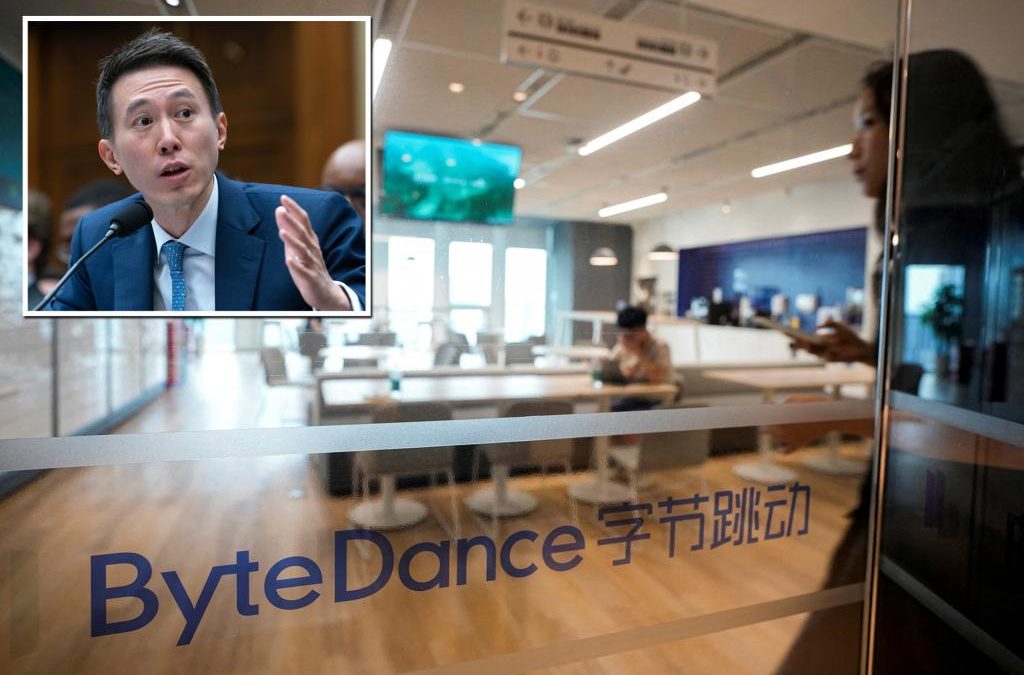TikTok parent ByteDance — the privately-held Chinese company behind the wildly popular short-form video app — saw its revenue growth slow last year, according to internal financial documents obtained by The Wall Street Journal.
Beijing-based ByteDance’s finances showed that the company’s revenue advanced 38% in 2022, to $85.2 billion — a big increase that was nevertheless well short of the year-earlier jump of nearly 80%, according to The Journal.
ByteDance’s cost of sales in 2022 was also up nearly 40% year over year, to $37.7 billion.
However, the company generated more than $20 billion in operating profit last year, per the outlet, a turnaround from the $7 billion operating loss it experienced in 2021.
ByteDance also offered to buy back shares from current employees at $160 per share, people familiar with the matter told The Journal.
It also has 1.4 billion shares outstanding, which would value ByteDance at $223.5 billion — down about 26% from the $300 billion valuation it enjoyed a year ago, The Journal reported.
A ByteDance spokesperson told The Post: “As a private company, we do not provide a valuation or other related information, rendering it impossible for this calculation to be accurate.”
ByteDance has historically guarded its finances in a move that’s only heightened US lawmakers’ push to ban the app over national security risks.
The reports The Journal reviewed, which were sent to employees Monday and disclosed full-year financials for 2021 and 2022, as well as the first quarter of 2023, was one of the most detailed looks into the company’s performance yet.
The documents also showed that despite an increase in revenue, TikTok has been slashing its marketing, administrative, and research expenses, per The Journal.
Among its declining expenses were $14.8 billion in selling and marketing expenses — down from the $19.2 billion it spent the year prior.
Research and development spending also decreased by $5.9 billion from 2021 to 2022, to $8.7 billion, according to The Journal, while administrative expenses fell from $8.3 billion in 2021 to $4.5 billion in 2022.
However, the company doesn’t seem to be strapped for cash, with revenue reaching $24.5 billion for the first quarter of 2023 — already a 34% jump from the year prior.
Total assets were also up in March, soaring to $95.5 billion from $64.3 billion in 2021, The Journal reported.
It’s unclear what TikTok’s cost-cutting efforts entail, or if the popular video-sharing app — which boasts over 150 million users in the US alone — has conducted any layoffs since The Post last reported it slashed jobs from its 2,000-person workforce in India back in 2021.
It has, however, pushed for US staffers to report to one of 13 office locations across the US, including its headquarters in Culver City, Calif., and NYC hub in Times Square by downloading an internal app called “MyRTO” to track office attendance.
Each worker’s office badge data will be viewable by their supervisor and HR staffers.
Staffers were reportedly told that they’ll face consequences if they fall short of the three-day-per-week minimum attendance requirement, which took effect this month.
ByteDance’s TikTok unit launched an e-commerce initiative in August, called TikTok Shop, which insiders told The Journal the company hopes will bolster revenue growth.
The company has touted TikTok Shop as a feature that “empowers brands and creators to connect with highly engaged customers based on their interests,” and ensures its consumers that users are vetted before being able to participate in selling products on TikTok Shop.
The transaction is completed using third-party payment services PayPal and Stripe, which are known to have encryption to protect user data.
The company, however, still has a long way to go in convincing US authorities that TikTok is safe and that ByteDance isn’t looking to access data tied to US users.
However, TikTok staffers have claimed that China-based employees of ByteDance can, in fact, access American users’ nonpublic data from at least September 2021 through January 2023.
Activist groups have also warned that the app promotes harmful content to impressionable users aged 18 to 34 — over 70% of TikTok’s user base.
Most recently, the nonprofit Center for Countering Digital Hate released a study claiming that the app has become a key marketing channel for promoting steroids and other bodybuilding drugs.
Source




